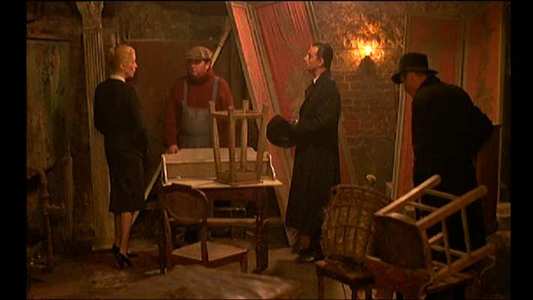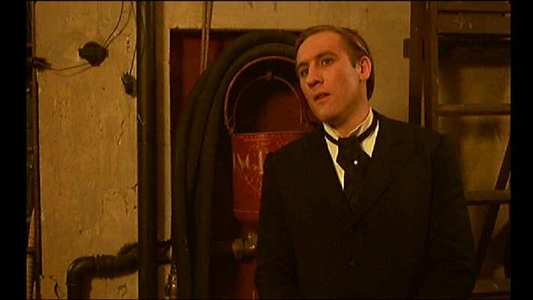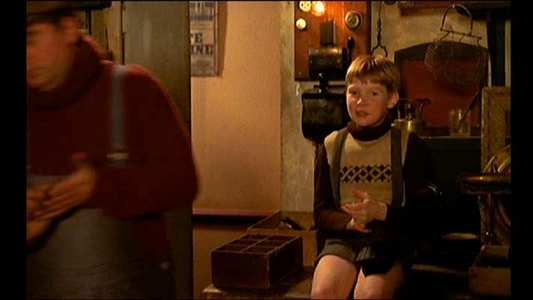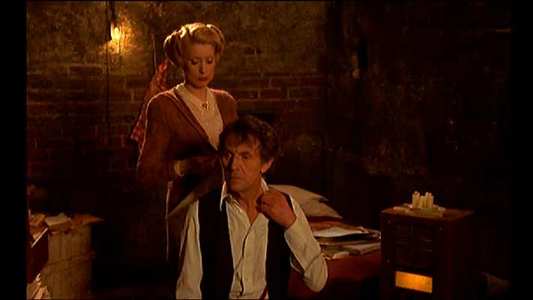Review of Last Metro, The
Introduction
Ok, a quick confession first. Readers of my column may have noted that I once had a bit of a dig at François Truffaut for bringing agony and depression to my French A Level studies. We had to watch many of his films, and the ones selected weren`t really designed to appeal to those in the 16-18 age bracket.
But even during the agony, there were one or two that stood out. Le dernier métro was one of those, although we only got one look at it, and didn`t get to study it in detail. Le dernier métro tells the story of a theatre in occupied France in 1942. The Jewish owner has gone into hiding, leaving the running of it to his film-star wife.
I don`t want to say much more, since this is one of those films which has much up its sleeve on first viewing, so let`s leave it that way. I will just add that it won 10 French Academy Awards in 1981 (and narrowly missed out on the other 2 it was nominated for)...

Video
A 1.78:1 anamorphic transfer, which seems slightly shifted to the right. I can`t work out if this is intentional or not, but my best guess is that it probably is. As for the transfer itself, it`s pretty good, and millions of times better than the last time I saw it (from a TV broadcast). There is a refreshing lack of dirt, dust and speckles, apart from the very odd moments with some massive horizontal scratches.
It looks a lot like you might imagine a 1942 theatre, even though there are some "very obviously a set" sets. There`s also some brief black and white footage of the métro itself. There are plenty of Truffaut visuals here too, from the small boy hanging around outside the theatre, to the obsession with women and their legs. There`s also the "performance within a performance" element, first seen in La nuit américaine.
Finally, although uninentional, Catherine Deneuve`s hair does often resemble that of Princess Leia.

Audio
A DD2.0 stereo French soundtrack, which is the original mono soundtrack replayed over both channels. For those who don`t like subtitles, you`re out of luck, as the film is only available in its original language, along with the commentary track. If your French is a little rusty, and is anything less than A Level, you might struggle a lot without those subtitles. The dialogue flows thick and fast, and the subtitles do miss out quite a bit from time to time. So you can watch it without knowing lots of French, but you`ll be missing little bits out. The subtitles are Americanised too, which is a minor point, but one which annoys me!
The translations sometimes leave much to be desired, and they get tied up in knots when trying to translate someone reading out clues from a crossword puzzle. The French word they seek contains three letters, but the English translation contains more! Best not to listen to the French bit at that point!
The sound itself is fine, everything is audible and without hiss, and you get some songs from the period chucked in for good measure.

Features
Extras too! These start with a very dour introduction to the film, from a rather mono-syballic chap. If you didn`t study Truffaut for your French A Level, you`ll probably find this interesting if you can listen to the voice!
There`s also some interview footage from the time of release, as well as what looks like home movie footage of Truffaut talking about his love of books. You can then watch footage from the 1981 French Academy Awards, where the film picked up 10 of the things! The footage itself looks and sounds a bit rough, but it seems to be from an official source.
A deleted scene comes next, and whilst the scene itself doesn`t amount to much, it`s a delight to see such a thing. You can also watch a trailer, which tries to trail a different film(!) as well as trailers for many other Truffaut films, including an unintentionally hilarious one for Fahrenheit 451.
And to wrap up we have a commentary track featuring historian Jean-Pierre Azema and star Gérard Depardieu. This covers the historical background to the film, as well as Depardieu`s memories of making the film and of Truffaut. Very interesting and well worth a listen/read (it`s French with English subtitles).

Conclusion
10-12 years ago, I could never have imagined saying this, but maybe time is a great healer. I really enjoyed this film, and was more than happy to watch it, and then watch it again with commentary. An excellent study of a theatre and its occupants in wartime France. Excellent performances from Depardieu and Deneuve, and Jean-Louis Richard as a nasty, slimy anti-semite. There`s homosexuality, sex being compared to a warm croissant (really!), and Truffaut finds time to throw in one of his little "hareng saurs" (red herrings). Perhaps the only shame is the "Hi De Hi" style of the end credits!
The DVD itself is good, with pretty good picture, fair sound, and a nice little lump of extras. Not one that`s going to appeal to everyone, but for those interested in François Truffaut or French cinema, you should hunt this one down tout de suite! Even my fellow A Level students would enjoy it now!
Your Opinions and Comments
Be the first to post a comment!